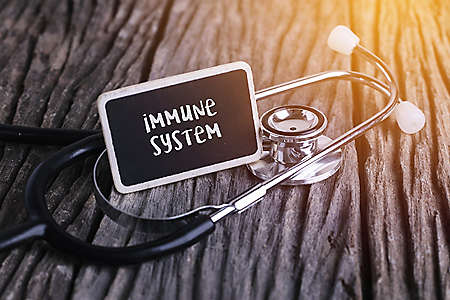Gut health is so much more than just what happens in the gut1. Today we know gut integrity and health don’t just affect the gastrointestinal tract, but also the immune system and consequently overall health, thus the importance of looking out for it. This link between gut health and overall wellbeing is becoming more evident and gaining more attention from the consumers. In fact, 69% of global consumers recognize the impact of poor digestive health on the risk of illness2.
Across the globe, the proportion of consumers suffering from digestive problems is on the rise with a decline on overall consumer satisfaction when it comes to this health area. According to a 2022 survey from FMCG Gurus, global consumers of all ages, are actively taking actions and plan to address their digestive health over the next 12 months2.
Where The Gut And Immune System Meet
Up to 70% of the immune system is localized in the gastrointestinal tract1. The intestinal barrier is considered the largest immunological organ in the body, having a central role in regulating a balanced immune response. The intestinal barrier is responsible for the maintenance of homeostasis and physiological functions, such as nutrient and water absorption and water secretion3. Besides these functions, the intestinal barrier also regulates the exposure to “non-self” substances4,5. Summing up, this barrier is the primary gatekeeper4 between exogenous substances and our organism through various transport pathways5.
The Leaky Gut
The intestinal barrier plays an essential role in protection and acts as a gatekeeper on what stays “in” and “out” of the body. This is achieved through the presence of structures (“gates” called Tight Junctions”) that keep cell tightly linked together allowing water and nutrients to pass through keep harmful substances out. Knowing what the gastrointestinal tract is responsible for, it is understandable that breaking its balance can have negative outcomes. Loss of intestinal barrier function can lead these openings to become wider and more permeable, allowing food particles, bacteria, and toxins to enter directly into the bloodstream. Increased intestinal permeability has been seen to precede many pathological states and is linked to the “leaky gut “ theory that states that endogenous and exogenous factors can increase intestinal permeability, allowing the entrance of threats to our health3,6–8.
How can we know if gut integrity is intact?
Science has shown that there are measurable signaling molecules in our body that can indicate the status of the intestinal barrier6–10. They’re called leaky gut markers or markers of gut integrity. Some of these include fatty acid binding protein (I-FABP), diamine oxidase (DAO), lipopolysaccharide (LPS), interleukin (IL)-6, IL-8, lipopolysaccharide-binding protein (LBP) and zonulin. Of all these markers, zonulin is the only known physiological regulator of intestinal permeability.
- Zonulin6–8
Zonulin is a protein responsible for the control of one of the four possible transport pathways through the intestinal wall, called the paracellular pathway. It regulates the openings of the gates between cells (the tight junctions) making it a modulator on the transport flow between the outside and inside of the body.
Biomarkers of gastrointestinal functionality allow a deeper knowledge about the biological mechanisms that affect the intestinal barrier health and function, opening the door to innovation when targeting gut health solutions.
Changes in lifestyle through diet, exercise and supplementation may have the power to modify leaky gut markers, support immune and gastrointestinal health.
At the end, is all about picturing a healthier version of you.



?$featuredContent2$)